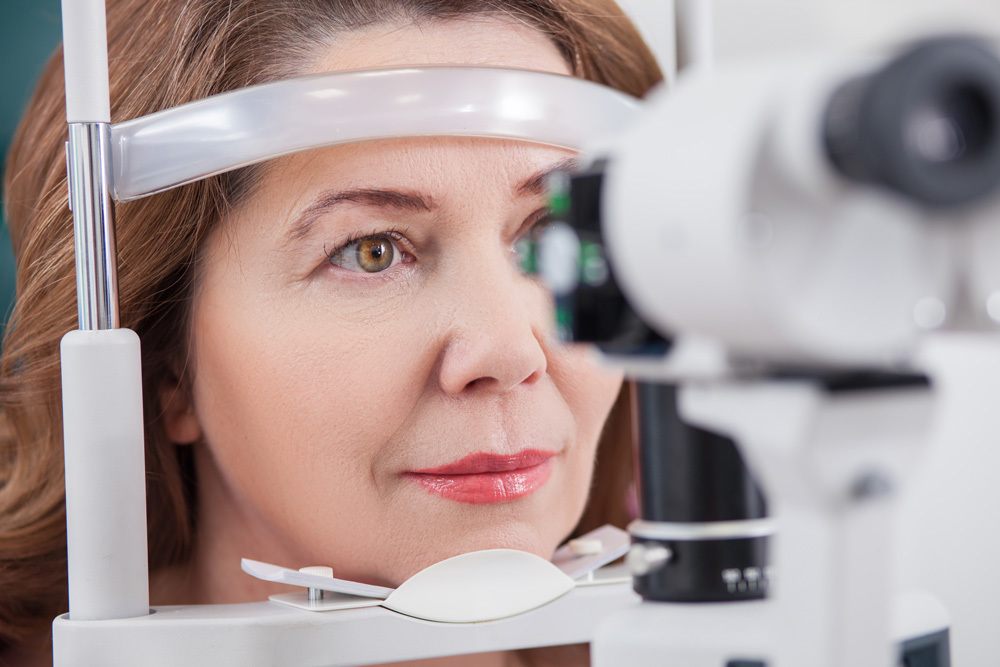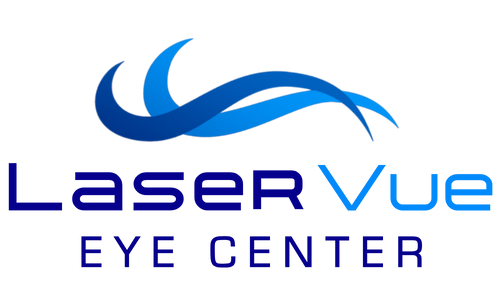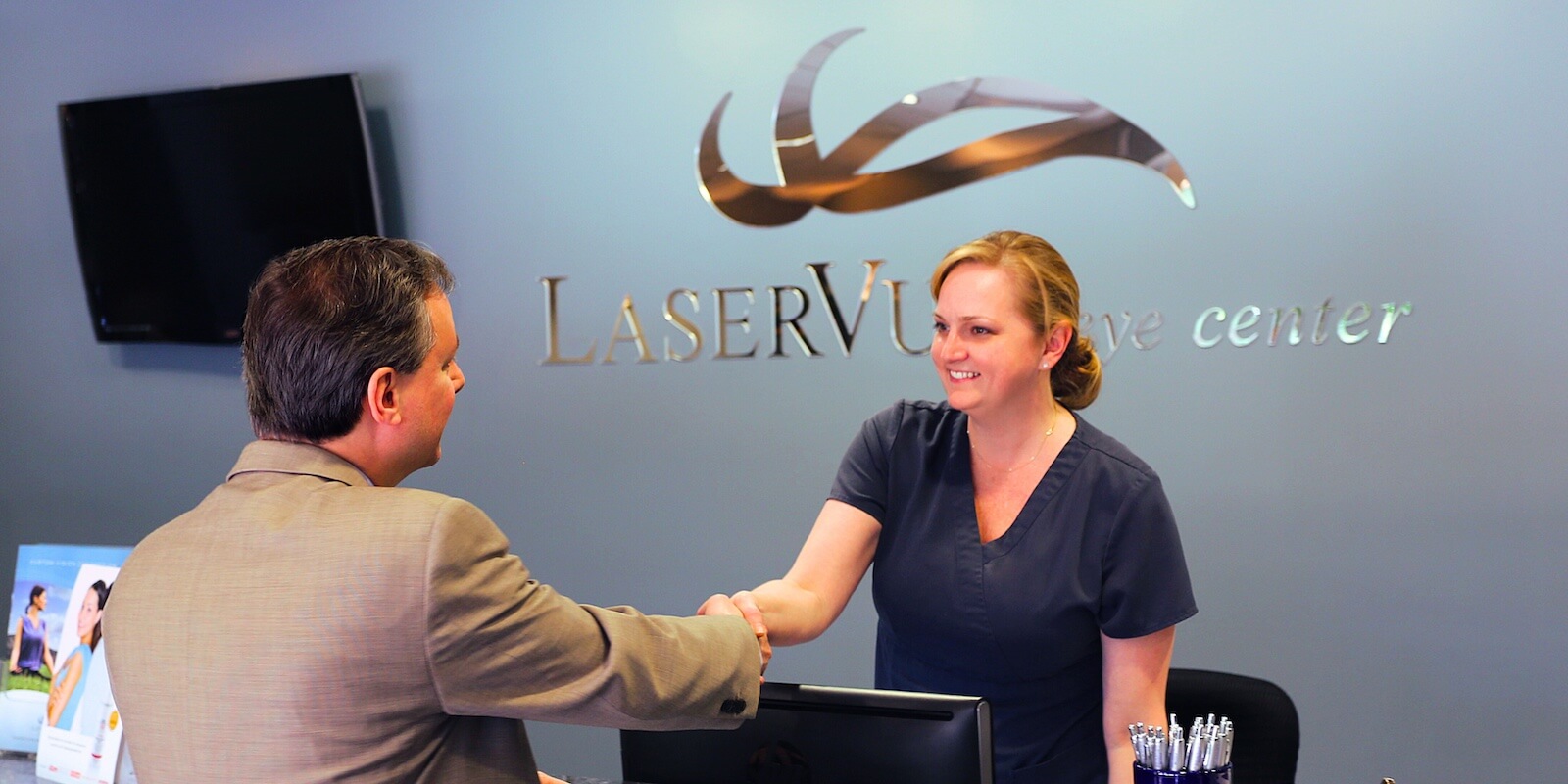Posted by: LaserVue LASIK & Cataract Center in Technology,Vision Correction Questions

“I can see just fine, I don’t need to visit an eye doctor.”
A commonly held assumption is that if you can see clearly now, why would you need to have your vision checked by an ophthalmologist? Good vision is important, yes, but a comprehensive eye examination is so much more than a quick test of your visual acuity.
As a matter of fact, your eyes are not just your windows to the world, they also provide an impression of your overall health. Many ocular conditions and other bodily diseases show early warning signs through the eyes, including diabetes and cardiovascular health. Other eye diseases such as glaucoma and diabetic retinopathy show no symptoms during their early stages.
Detecting Problems Early is the Key to Long-Term Visual Health
Most vision loss is irreversible if left untreated and scheduling comprehensive eye exams with a skilled ophthalmologist can preserve your vision and catch developing conditions early.
Who Should Schedule Routine Comprehensive Eye Examinations?
As one of the best ways to be proactive and prevent eye conditions from causing permanent damage, the short answer to “who should get a comprehensive eye exam?” is – everyone. However, a primary factor in determining who should schedule regular eye exams is based on age.
The recommended regularity of eye examinations is as follows:
- Adults Under 40 – Schedule an eye exam every 2-3 years.
- Adults Over 40 – Schedule an eye exam every 1-2 years.
- Adults Over 65 – Schedule eye exams annually.
With age, comes increased susceptibility to many eye diseases including cataracts, glaucoma, and macular degeneration. Furthermore, if there is a family history of vision problems, you should consult with your ophthalmologist about how often you should have your eyes examined.
What Happens During a Regular Comprehensive Eye Examination?
A comprehensive eye exam at LaserVue Eye Center is made up of a series of tests aimed at determining your eye health as a whole and which treatments may be available to you if needed.
Your examination could include the screening and consultation of:
- Family History
A family history of ocular conditions are often good indications of potential problems and can assist in identifying problems early.
- Sight Acuity Test
A simple measurement of sight to determine how your eyesight compares to someone with “normal” vision at varying distances.
- Vision Refraction Test
Using refractive techniques, this test can determine your need for eyeglasses or contact lenses and what prescription you need.
- Ocular Movement & Positioning
Check muscle functionality and eye coordination to assess how well your eyes work together and individually.
- Pupil Reactiveness & Size
Multiple conditions including uveitis, acute glaucoma, high blood pressure, and optic nerve damage can be diagnosed through pupil examination.
- Eye Functionality & Health
The functionality of your optic nerve, retina, optic pathways, and field of vision help detect certain eye conditions.
Patients can expect a complete interpretation and summary of all findings so they may understand what results mean, what treatment options may be available, and have any questions answered.
How Can I Maintain Healthy Eyes Between Comprehensive Eye Examinations?
Comprehensive eye examinations are the best way to catch and treat eye-related diseases and conditions. But there are still plenty of proactive choices and activities you could do on your own to support your eyes and visual health.
- Healthy Diet
Vegetable and fruits are important for supporting the tissues of your eyes. Studies are showing that diets rich in antioxidants, vitamins C & E, and omega-3 fatty acids promote eye health.
- Routine Exercise
Cardiovascular and circulatory functionality is improved through exercise and increase oxygen in our bodies and eyes reducing your risk of certain conditions such as macular degeneration.
- Eye Protection
Eye protection includes sunglasses with UV protection and safety goggles that protect the eyes from possible impacts such as an athletic or work-related injury.
- Not Smoking
Smoking is incredibly harmful to our bodies and that is absolutely true for our eyes. Smoking has been linked to the development of cataracts, optic nerve damage, and macular degeneration.
- Turn Off the Screen
Spending too much time in front of a computer screen, smartphone, or television can make your eyes dry and fatigued. It is recommended to practice what is called the “20-20-20 rule” to avoid eye strain. This means: every 20 minutes, focus on something 20 feet away for 20 seconds.
Keep an Eye on Your Vision with LaserVue Eye Center
It is good advice to say we should always try to be aware of changes in our eyesight so we may take appropriate action and prevent possible vision loss. However, scheduling regular eye exams is crucial for the diagnosis and even prevention of many sight-threatening conditions.
If you are interested in learning more about the benefits of a comprehensive eye exam, please call or contact online the skilled staff at LaserVue Eye Center. Schedule a comprehensive eye examination at any of our locations in San Francisco or Santa Rosa today to maintain your best possible vision.

